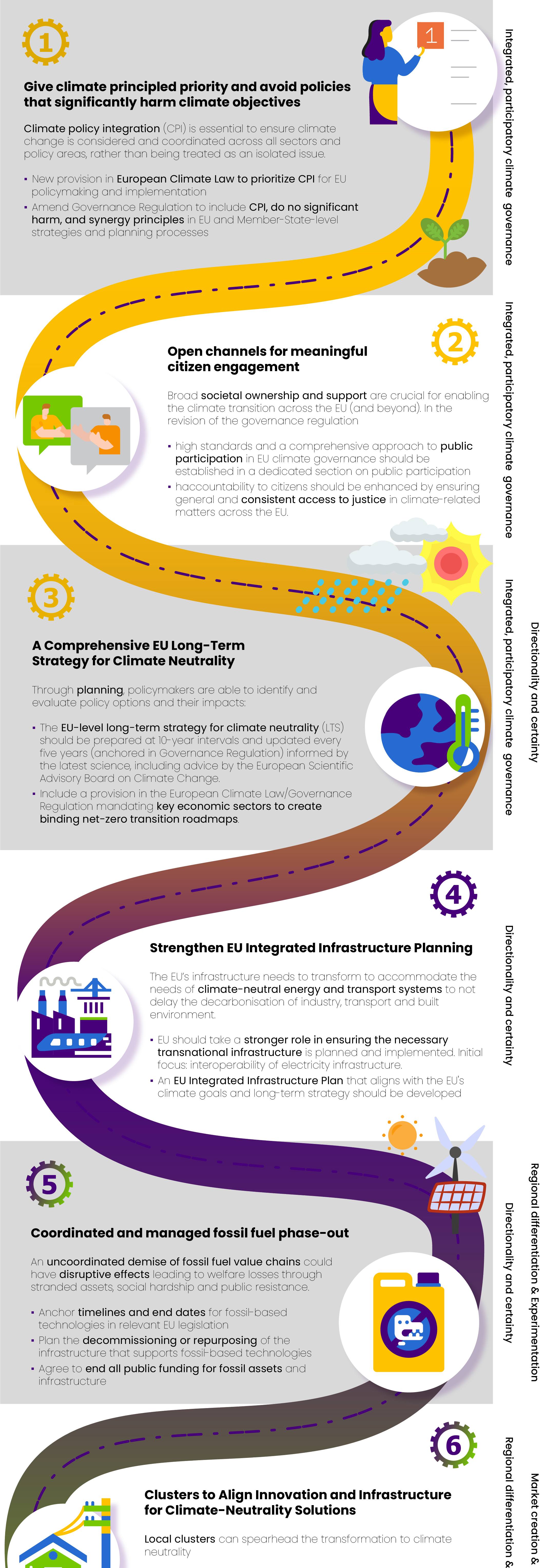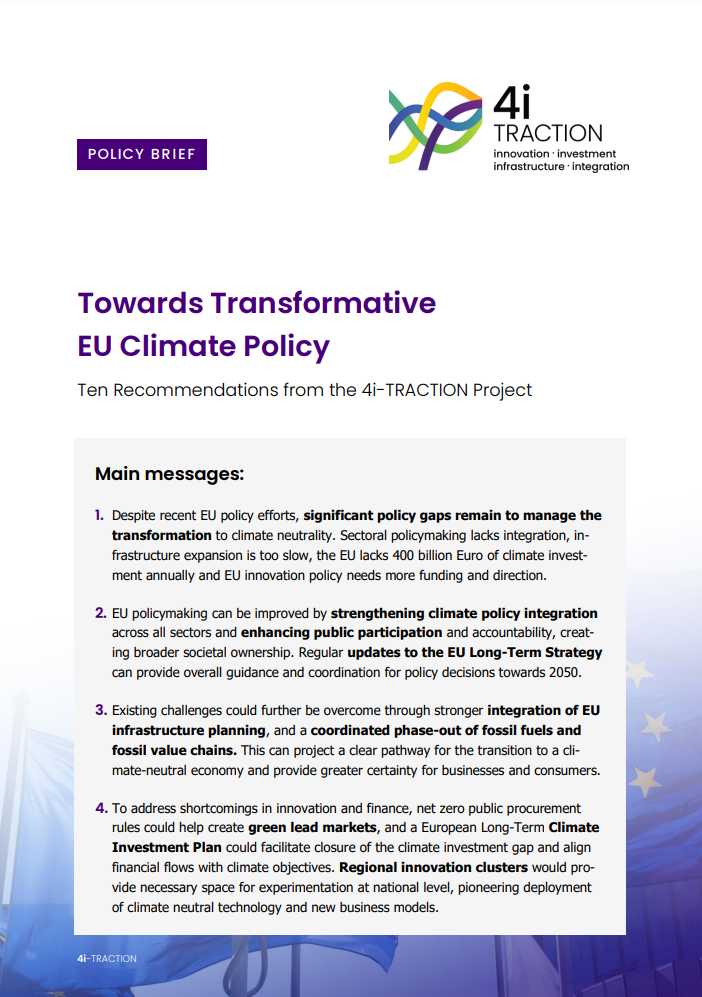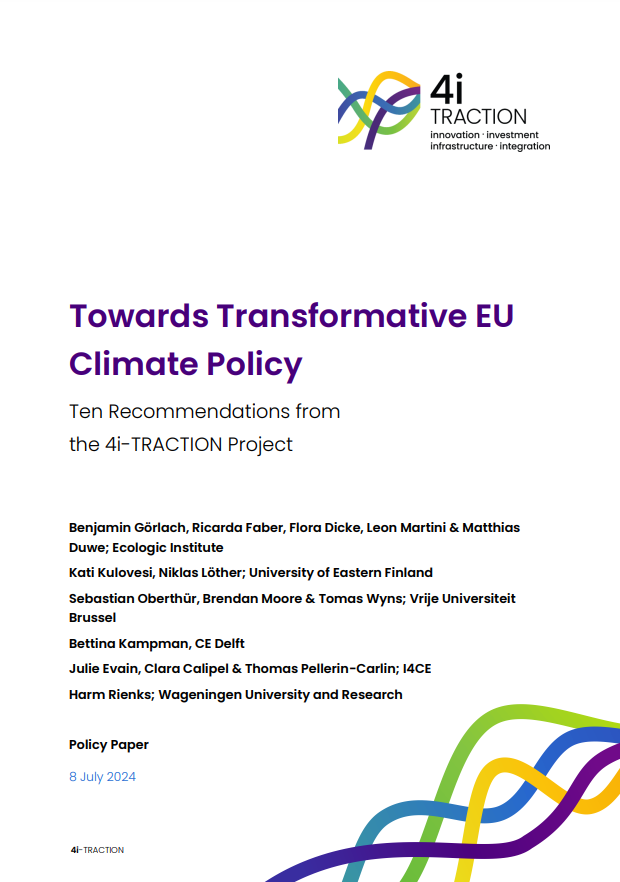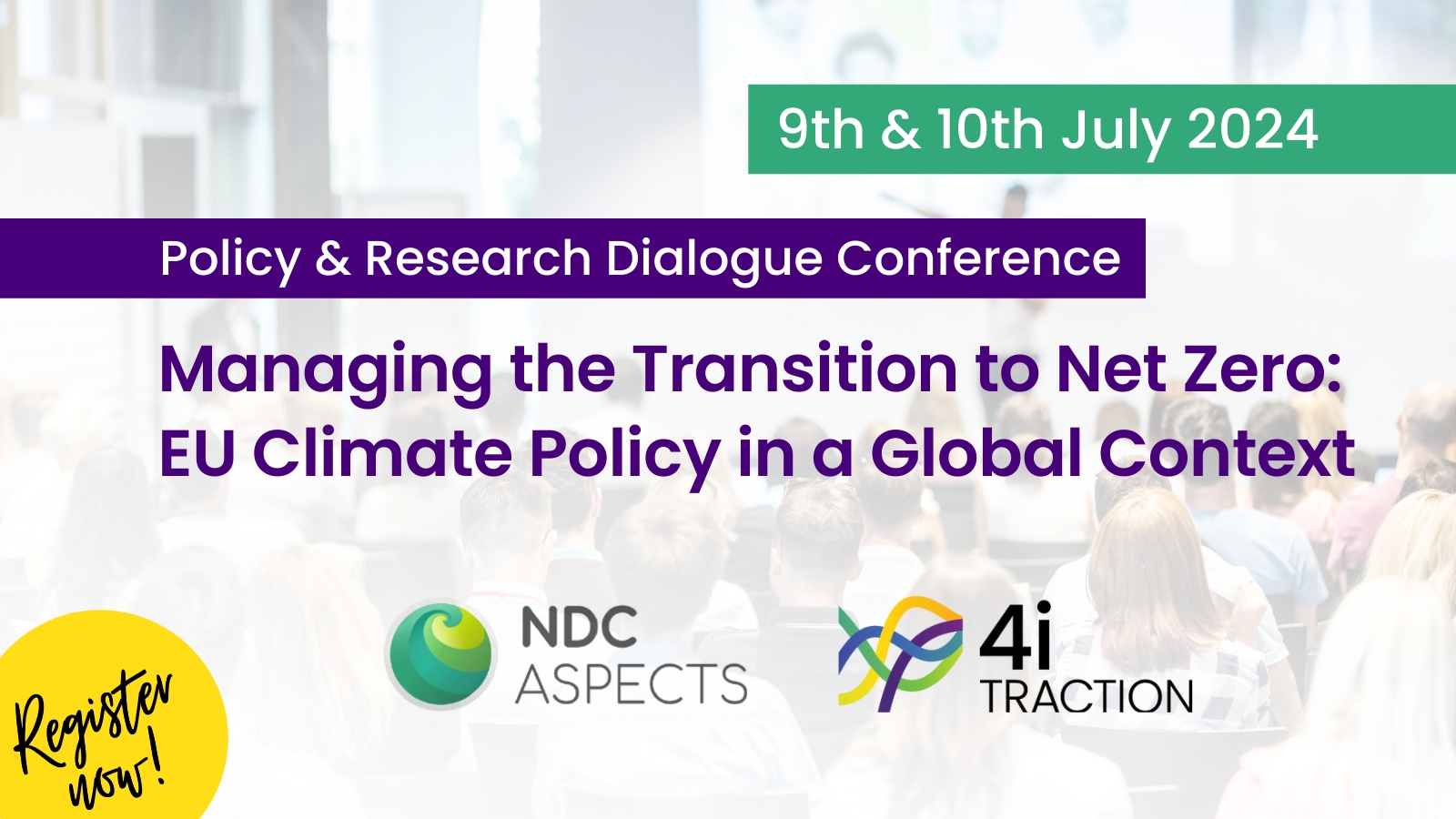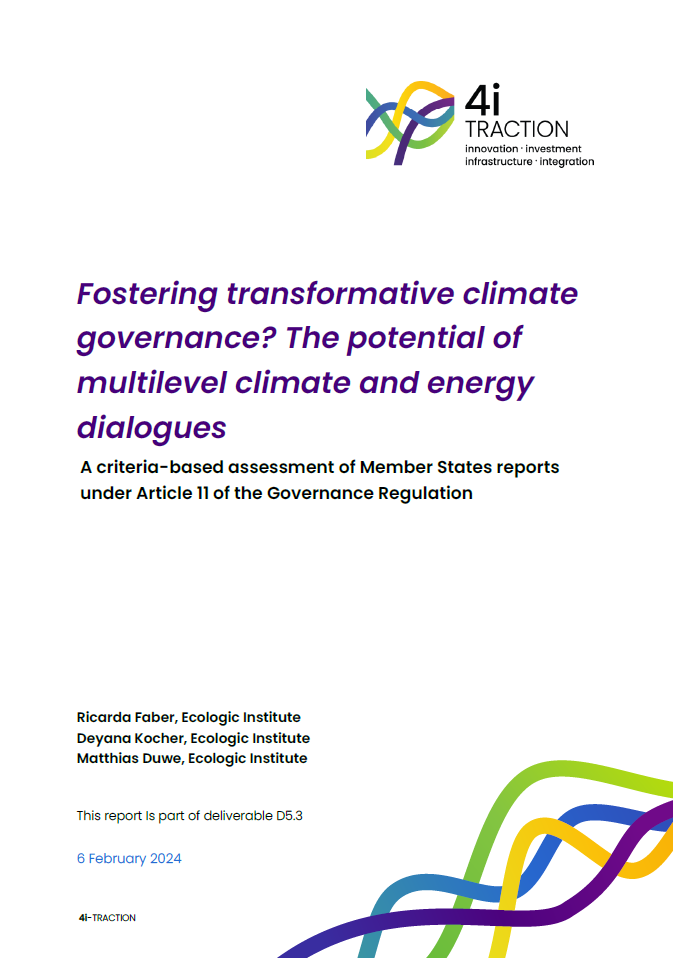Transformative Policies for a Climate-neutral European Union (4i-TRACTION)
Innovation, Investment, Infrastructure, and sectoral Integration
- Project
- Research Program
- Duration
-
-
To achieve climate neutrality by 2050, EU policy will have to be reoriented – from incremental towards structural change. As expressed in the European Green Deal, the challenge is to initiate the necessary transformation to climate neutrality in the coming years, while enhancing competitiveness, productivity, employment. To mobilise the creative, financial and political resources, the EU also needs a governance framework that facilitates cross-sectoral policy integration and that allows citizens, public and private stakeholders to participate in the process and to own the results. To analyse how this can be done, the 4I-TRACTION project brings together nine partners from seven European countries: Vrije Universiteit Brussel (Belgium), Ita-Suomen Yliopisto (Finland), I4C (France), Climate Analytics, Ecologic Institute (Germany), CE Delft, Wageningen University (Netherlands), Wise Europe (Poland), Universidad De Vigo (Spain).
The 4 i's
The project analyses what transformative EU climate policy could look like. Based on a stock-take of existing climate policies and their performance, it will spell out a number of policy avenues and develop an overarching governance framework for EU climate and energy policies. In doing so, it will describe how the current EU policy mix needs to evolve in the 2020s to set course for climate neutrality by 2050. It thus takes the realities of EU policy making as its point of departure - from the European Green Deal to the post-Covid-19 recovery efforts. This also encompasses a thorough analysis of the factors that contributed to the achievement of the EU’s 2020 climate targets, supported by an assessment of key climate policies and their implementation in seven Member States. The analysis will be structured around four cross-cutting core challenges, the "4 i's":
- fostering breakthrough innovation
- shifting investment and finance
- rolling out the infrastructure for a climate-neutral and resilient economy
- integration of solutions across sectors
This structure reflects that a systemic transformation will need to evolve beyond sectoral policy approaches. Incorporating scientific insights and policies from outside the EU as well as examining how the EU's efforts interact with those of other countries, the project will also look beyond EU borders. The analysis will be grounded in science, but also aligned with the EU's dynamic political environment. To receive input, provide feedback and validate conclusions, the project will closely engage with stakeholders throughout its lifespan.
Project activities
The project is structured around seven interlinked Work Packages:
- WP 1 provides the conceptual groundwork and the quantitative framework for subsequent steps by providing a definition and taxonomy of transformative climate policies, and a quantitative scenario of what the transformation to a climate-neutral economy entails for the EU Member States.
- WP 2 provides an ex-post assessment of EU climate policy and the factors that have contributed to attaining the EU’s 2020 climate and energy targets.
- WP 3 combines both a backward-looking and a forward-looking perspective, by analysing international best practice examples of transformative climate policies outside the EU, and by developing recommendations how the EU could support such policies in its climate diplomacy and bilateral cooperation efforts.
- WP 4 develops a set of policy avenues to attain the EU’s climate goals and provides an ex-ante assessment of their expected impacts.
- WP 5 builds on this by developing proposals for an EU climate governance framework that is capable of delivering transformative change.
- WP 6 coordinates the stakeholder engagement that is an integral part of the research activities in all WPs.
- Finally, WP 7 provides the project management activities.
The role of Ecologic Institute
Ecologic Institute coordinates the project, which is funded under the European Commission’s Horizon 2020 Programme. In addition, Ecologic Institute leads the work on stakeholder engagement and dissemination, and the formulation of policy avenues.




